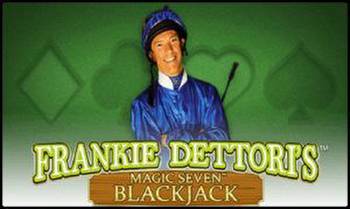Do exclusions of liability work online? Online gambling operator ordered to pay £1.7m winnings despite 'glitch'

Mr Green won a game in error and wanted to recover his winnings. Petfre (Gibraltar) Ltd, an online gambling company, argued he won in an error due to an in-game glitch. The UK High Court ruled in favor of Mr Green.
The UK High Court ruled that the contract terms that apply to users online activities should be formed at the point of the provision of a service. Exclusion clauses typically found in standard form online service terms, end user licence or other "click wrap" agreements may not be enough to exclude a provider's liability for errors caused by malfunctions of their service, as the court ruled.
Exclusion clauses may not be enough to exclude a provider's liability for errors caused by malfunctions of the service. The contract terms that apply to users online activities may be formed at the point of provision of a service to the user, rather than at their creation.
Mr Green won £1.7m in an online game called Magic 7 Blackjack. He won the jackpot three times over a period of several hours. Mr Green was not able to withdraw any money because of a glitch in the game.
Betfred was ordered to pay Mr Green £1.7m despite a software malfunction. Mr Greens had already agreed to withdraw the money from his account. Betfred argued that the contract excluded their liability for payouts triggered by a defect.
Betfred is challenging the exclusion clause in the general Terms and Conditions and the Individual Game Rules. They argue that the doctrine of mistake applies. They also argue a summary judgement would be inappropriate. Betfred also argues that such a ruling would have a large impact on the industry.
There is a clause in the general Terms and Conditions which excludes liability for "costs, expenses, losses or claims" arising from systems errors. There is also a similar exclusion clause for the End User Licence Agreement for third party gaming software platform. The Individual Game Rules set out that a "malfunction" "voids all pays and plays".
Betfred was ordered to pay £1.7m in damages despite a glitch. The High Court looked at the Exclusion Clauses and the End User Licence Agreement to determine the correct interpretation of them. The Ex exclusion clauses did not exclude liability for winnings. They did exclude the liability of the unavailability of a system. In relation to the Individual Game Rules, the High court did find that the definition of "malfunction" was not intended to apply to an undetectable "glitch".
The High Court found that Betfred incorporated the exclusion clauses into the gambling contract between the two parties before Mr Green's winnings were incorporated. The Exclusion Clauses were not clearly drawn to Mr. Green. The High court also found it was possible to play the game without accepting the Individual Game Rules. Betred had included a mechanism for signing up to the Terms and Conditions and End User Licence Agreement. It was not enough to make the Ex exclusion Claus more visible. They wrote in capital letters. In this case, the HighCourt found the use of the "click and scroll" mechanism was prudent.
The High Court found that the Exclusion Clauses were not transparent or fair, so Betfred was not entitled to rely on them.
The High Court rejected Betfred's secondary arguments that the doctrine of mistake applied. The court also ruled that there had been no mistake because performance of the contract was not rendered impossible. The ruling is likely to be important for providers of online gaming and the wider provision of services. It is not making a blanket ruling that incorporating exclusion clauses via 'click wrap' is inadequate to successfully exclude liability. However, the level of sophistication and visibility of methods used to draw consumers' attention to the applicable terms and conditions should be proportionate to and calibrated to how onerous the terms would be.





































